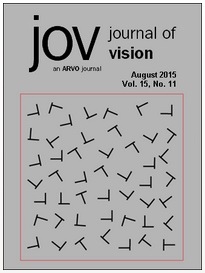Binocular vision disorders (BVD) are quite common in subjects with cerebellar dysfunctions. Also individuals with strabismus often suffer from many motor deficits, such as impaired body balance and walking. It is known that the cerebellum is necessary to maintain proper body posture but also to learn motor skills. It is conceivable that subjects with BVD would also have deficits in procedural (implicit) motor learning, one of the primary cerebellar functions. The primary aim of this study was to explore motor learning abilities in subjects with BVD (strabismic group, SG). Modified versions of a single reaction time task were used in the scheme proposed by Molinari et al. in 1997. A set of three different tasks (Experiment 1) were performed under dominant eye viewing to investigate (a) procedural (implicit) motor learning, (b) declarative (explicit) learning, and (c) simple stimulus-response associative learning. Because each task examined different aspects of motor learning abilities, it could be revealed which motor learning pathway is impaired in SG. Results showed that the SG had slower reaction times in all three tasks and demonstrated poor implicit motor learning ability compared to controls. To verify if these results were caused by reduced binocular vision or cerebellar deficits, per se, a nonstrabismic binocular anomalies group (NSG) was introduced, and all the same tests were performed (Experiment 2). These results revealed that there were no differences between the NSG and the control group with good binocularity. To conclude, the poor procedural learning ability and slower reaction times in strabismic subjects should not be explained as an effect of incomplete binocular vision that influences the maturity of the visual cortex and transformation of visual information into a motor program because binocular anomaly individuals without strabismus have motor learning abilities close to the controls. Some cerebellar deficits appear to be the origin of observed anomalies.

